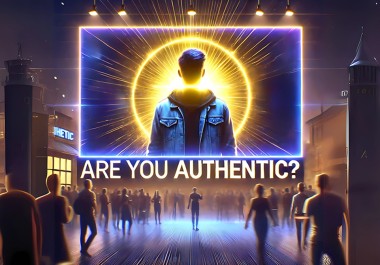That image above represents the Jaguar sports car I coveted as a young and hard-charging, success-driven CEO earlier in my life while I was living out what I call Destination-Point Happiness (DPH)—a pervasive and deluded view of the future.
In my own life, DPH was a dangerous game that came from playing boss and not yielding everything to God. This dynamic presented itself through an unhealthy focus on work and establishing one future-oriented success goal after another.
There was always something to shoot for and plenty of things to occupy my mind. The thrill of each impending conquest gave me a momentary sense of satisfaction, but the thrills eventually faded and had to be replaced. It’s a lie, of course, but much seems promising with Destination-Point Happiness. It appears pleasant and right, but it leads down the wrong road. Every time.
“There is a way that appears to be right, but in the end it leads to death.” Proverbs 14:12
Living with DPH made success the only watermark in my life during this period. That is what society told me to value in order to get ahead of the other guy. Looking back at that painful time shows me how much I would have benefited by trading in my success trek for living a Christ-like life of purpose. I needed to embrace the truth of what Ecclesiastes 4:4 says: “And I saw that all toil and all achievement spring from one person’s envy of another. This too is meaningless, a chasing after the wind.”
OUR TRANSFORMATION, NOT OUR MASKS
What God wants is simple. He wants our focus to be on him and on our love for others, and he wants us to use our divinely-given gifts and talents to glorify the kingdom of heaven. He wants our transformation, not the masks we don in our dash for DPH. This does not mean there are no destination points and successes along the way. God wants us to be successful in order to glorify him, but he also wants us to redefine success past the worldly definition and start moving toward a new and singular destination—living a purpose-driven life.
Reaching that goal is impossible if we fall into today’s trap of living the “every-man-for-himself” life where we only care about ourself. This is a selfish attempt to control things by exercising our own power. Actually, it is much more than selfishness; it is really a misplaced focus on an idealized sense of happiness at that destination point down the road. It is the “when I have thus and such, then I will be happy” syndrome that comes from trying to be in control of our lives. The problem is that it never happens. If we are not happy now, we won’t be happy later.
In this mode, we are on our own and trying everything we can to get what we want and what we convince ourselves we need. This selfish mindset raises at least one very important, life-defining question: “What do we have that is worth holding on to, anyway?”










